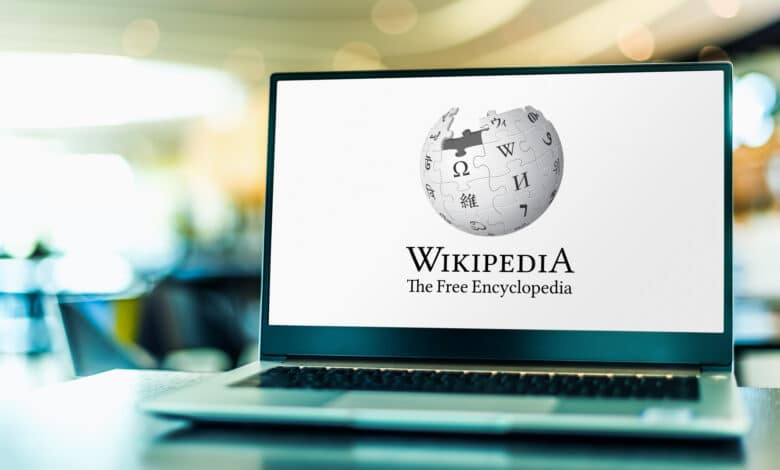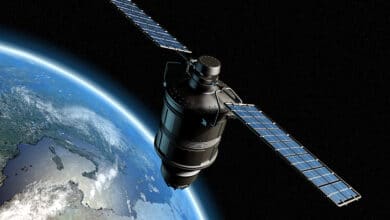
In order to sell his own people the meaning and purpose of the undoubtedly senseless war of aggression on Ukraine, President Vladimir Putin is relying on one thing above all: propaganda. After social networks such as Facebook and Twitter had already been blocked, it was the turn of independent media houses. Now it will apparently soon hit Wikipedia as well. Access to the popular online encyclopedia apparently does not please the Russian ruler either.
War instead of “special military operation”
The currently prevailing Ukraine war is increasingly turning into a humanitarian catastrophe of unimagined proportions. Although almost all states in the world agree that this is a brutal and unscrupulous war of aggression, Russia is still officially allowed to speak only of a “special military operation.” This applies to media organizations as well as to private individuals and website operators. In addition to a block, violators also face extremely high fines. Now Wikipedia seems to be in conflict with this regulation. The site does not use the vocabulary provided by the Russian leadership, but reflects the truth. Of course, the Russian media regulator “Roskomnadzor” does not like this at all. Now it is threatening to block Wikipedia. But the online encyclopedia’s volunteers have so far been combative.
The Internet is a powerful weapon
Like no other war before it, the Ukraine war makes clear the scope that media in general and the Internet in particular have in our digitized world. Russia is currently making this clearer than ever. Certainly, the country could never serve as a role model for free expression. Unlike China, for example, however, Russians have largely had access to the “Western” Internet. Of course, this also included Facebook, Instagram, Twitter, etc. In order to contain the associated risks, such as growing civil disobedience, Russia has now launched a genuine information war. Independent media are banned and social networks are blocked on the Internet. Instead, old wives’ tales are spread among the population and broadcast on state television. How long Putin can continue to hold up rose-colored glasses to his Russian people in this way is more than questionable. Although the first major anti-war protests by courageous Russians are already taking place, they are being brutally put down.
Neutrality is the be-all and end-all for Wikipedia authors
The less Russia’s residents learn about the current suffering in Ukraine, the better it looks for Putin. After all, he can still keep his population in line this way. Since the online encyclopedia Wikipedia considers itself an independent medium, its authors have naturally written about the current Ukraine war. In the process, the Russians’ interest in the related article is growing day by day. Since Russian propaganda did not have a hand in this, this is one of the few opportunities for Russians to have a neutral point of view. Meanwhile, the article has over 3 million views. The Wikipedia authors would simply be reluctant not to write the truth. After all, Wikipedia obliges them to write from a neutral point of view.
They do not take already with the heading a leaf before the mouth. Here they talk about an invasion and not about a special operation. Furthermore, they deny that Ukraine is ruled by Nazis, as Vladimir Putin said in a speech to the Russian people. However, the authors feel obliged to neutrality in the direction of both sides. Thus, especially in the case of the numbers of fallen soldiers, there is talk in each case that these are contradictory statements. The discrepancy between Ukraine and Russia is extreme. It is precisely the number of soldiers killed that now seems to be a thorn in the side of the Russian judiciary. The article puts the figure much too high, which is a violation of Russian law. There is also criticism of the truthful statement about Ukrainian civilians who were killed. According to Russia, these should not exist.
Wikipedia does not want to be intimidated
If the online encyclopedia does not comply with the wishes of the media regulator, willy-nilly the next website in Russia is threatened with blockade. However, Wikipedia and its authors stand united behind the content of the article. One does not want to retreat as a neutral information organ. In order to make it clear to the world public what pressure is coming from the Russian authorities, the letter from “Roskomnadzor” was published without further ado. On top of that, the online encyclopedia has warned against exclusion from the Russian Internet. After all, this would cut off one of Russia’s last independent sources of information from the outside world.
Instead of giving in, the so-called “Wikipedians” want to defend themselves legally. Since the prospects are modest, to say the least, those responsible for the website are already looking for replacements for the Russian users. In order for them to continue to receive balanced information, they would like to give a few tips on how to access the site even if it is blocked. It is questionable how the online encyclopedia wants to put this into practice. The obvious solution via a Virtual Private Network (VPN) does not seem to be that simple. After all, Russia is also currently taking stronger action against this solution for more anonymity and freedom on the Internet.
Wikipedia does not have it easy in Russia
The opponent, by the way, is not a new one for the online encyclopedia. After all, it already had to deal with the authorities of Russia in 2015. At that time, the accusation was that Wikipedia was presenting content that was harmful to minors on its website. Of course, these were articles that did not correspond to the political ideas of the Russian power apparatus. At this point it already became clear that Wikipedia’s motto was “all or nothing”. Thus, it was not possible to block the articles in question individually. This is avoided by the special encryption of the online encyclopedia. Deletion of the entire Wikipedia would have been inevitable. However, the dispute between the state and the website came to a standstill. As has now become known, Vladimir Putin instead tried to commission an alternative for the informative website. Although this attempt ate up any amount of money, it was obviously not successful. Accordingly, Wikipedia was forced to remain online. Until now.
International assistance for the Russian operators
Meanwhile, supportive words are coming to the Russian operators of Wikipedia worldwide and especially from Germany. For example, from the executive director of Wikimedia Germany, Christian Humborg, it says:
“Freedom of information is in great danger when access to facts and knowledge is suppressed”
We hope that with Wikipedia not another independent organ disappears from the Russian Internet. Otherwise, the supply is threatened with the help of independent media.




No replies yet
Neue Antworten laden...
Neues Mitglied
Beteilige dich an der Diskussion in der Basic Tutorials Community →